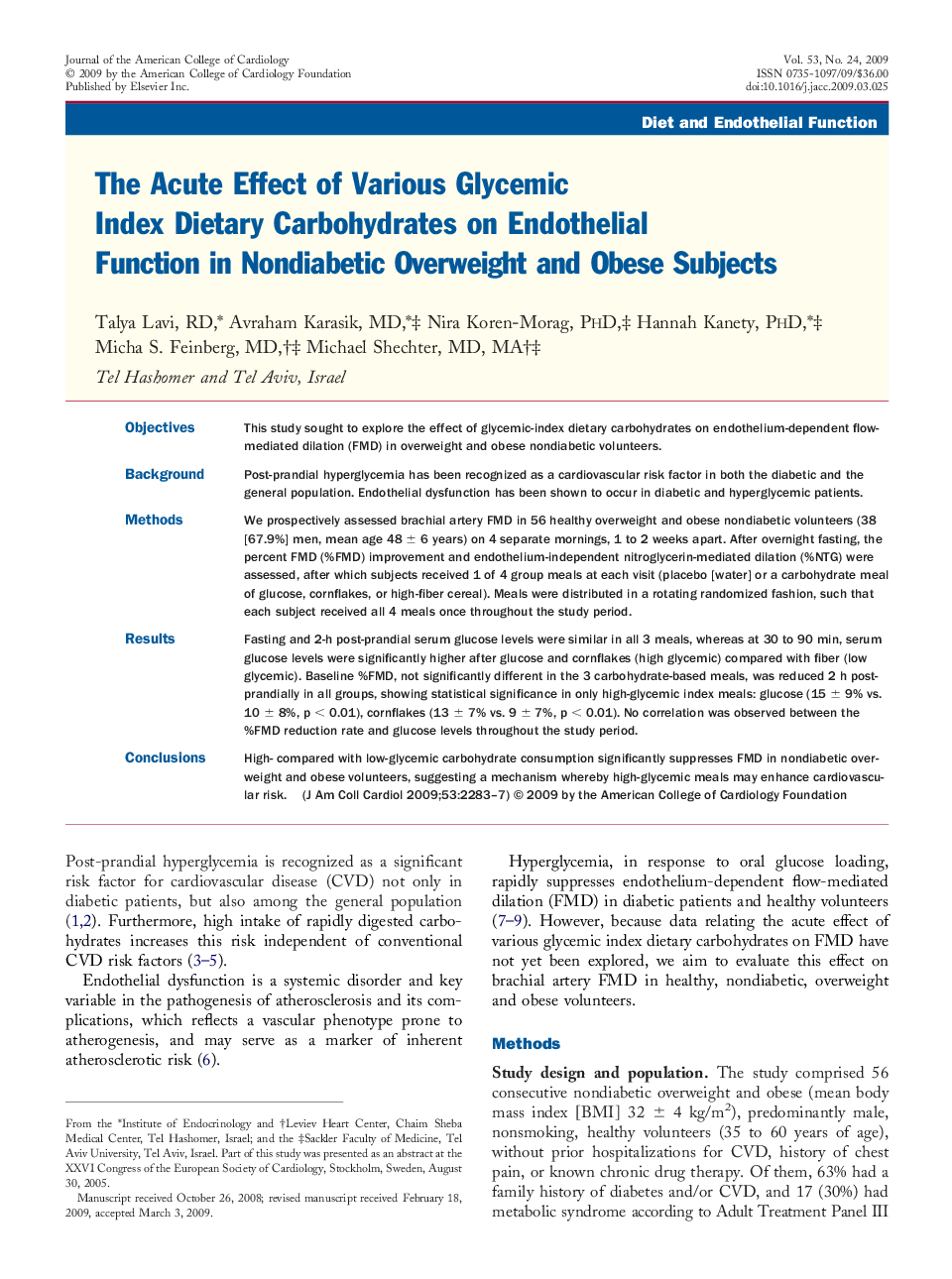| کد مقاله | کد نشریه | سال انتشار | مقاله انگلیسی | نسخه تمام متن |
|---|---|---|---|---|
| 2951995 | 1577365 | 2009 | 5 صفحه PDF | دانلود رایگان |

ObjectivesThis study sought to explore the effect of glycemic-index dietary carbohydrates on endothelium-dependent flow-mediated dilation (FMD) in overweight and obese nondiabetic volunteers.BackgroundPost-prandial hyperglycemia has been recognized as a cardiovascular risk factor in both the diabetic and the general population. Endothelial dysfunction has been shown to occur in diabetic and hyperglycemic patients.MethodsWe prospectively assessed brachial artery FMD in 56 healthy overweight and obese nondiabetic volunteers (38 [67.9%] men, mean age 48 ± 6 years) on 4 separate mornings, 1 to 2 weeks apart. After overnight fasting, the percent FMD (%FMD) improvement and endothelium-independent nitroglycerin-mediated dilation (%NTG) were assessed, after which subjects received 1 of 4 group meals at each visit (placebo [water] or a carbohydrate meal of glucose, cornflakes, or high-fiber cereal). Meals were distributed in a rotating randomized fashion, such that each subject received all 4 meals once throughout the study period.ResultsFasting and 2-h post-prandial serum glucose levels were similar in all 3 meals, whereas at 30 to 90 min, serum glucose levels were significantly higher after glucose and cornflakes (high glycemic) compared with fiber (low glycemic). Baseline %FMD, not significantly different in the 3 carbohydrate-based meals, was reduced 2 h post-prandially in all groups, showing statistical significance in only high-glycemic index meals: glucose (15 ± 9% vs. 10 ± 8%, p < 0.01), cornflakes (13 ± 7% vs. 9 ± 7%, p < 0.01). No correlation was observed between the %FMD reduction rate and glucose levels throughout the study period.ConclusionsHigh- compared with low-glycemic carbohydrate consumption significantly suppresses FMD in nondiabetic overweight and obese volunteers, suggesting a mechanism whereby high-glycemic meals may enhance cardiovascular risk.
Journal: Journal of the American College of Cardiology - Volume 53, Issue 24, 16 June 2009, Pages 2283–2287